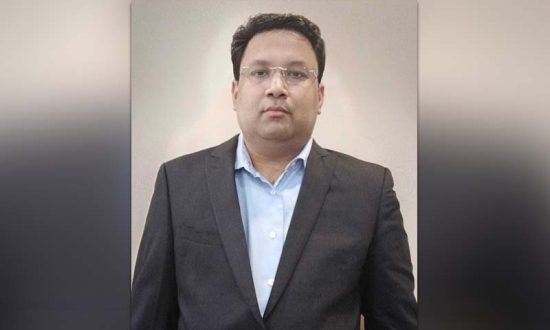Amar has over 12 years of experience in AI and Machine Learning across various industries including Healthcare, Retail, Finance, and Workforce Management. He graduated from IIT Kharagpur in 2008 from the Computer Science and Engineering department and went on to pursue his Masters 5N Computational Finance from Carnegie Mellon University in 2011.
Technology is flesh and blood of transformation, giving rise to an advantageous, futuristic and convenient world. Be it the entertainment sector or healthcare, companies are leveraging the latest invention in technology to improve not only the user experience but also how the industry works. Businesses, as usual, are about experimenting with what’s new, what’s evolving, and technologies like Artificial Intelligence and Machine Learning are giving them a launchpad to progress.
Medical sciences have improved rapidly over the last couple of years, increasing the life expectancy around the world. However, as longevity increases, healthcare systems are continuously facing a growing demand for their services, rising costs, needing a skilled workforce and technologies to offer the best to their patients in need.
With the progression in technology such as artificial intelligence, the potential to transform healthcare is now being delivered. The integration of this technology is helping improve the care outcomes, patient experiences and overall access to healthcare services in the country while also improving productivity and making the lives of people better in every way.
How is ML and AI improving the course of healthcare?
AI can benefit several functions in the health care sector, from mining medical records to designing a treatment plan, from assisting receptive jobs to creating a well-organised online consultation service, from designing treatment plans for patients based on their history and the history of the diseases to assisting in clinical decision making, from documenting accurate dictation to medication management, and more. Artificial intelligence and machine learning have proven to be helpful in areas where there is a scarcity of human resources.
AI has helped in dealing with COVID-19 cases, preliminary screening, contact tracing, tracking potentially infected people, management and development of vaccine and drug development, treatment and monitoring of patients and more.
Studies have shown that deep learning algorithms have given better insights to clinicians in predicting prognosis and future patient events.
Also, advanced digital technologies like AI and ML can help in the prevention as well as early detection of diseases by capturing and analysing various vitals of patients.
Challenges so far
The adoption of an AI-driven healthcare system in India is filled with lots of challenges.
A recent survey by KPMG sheds light on how even though artificial intelligence is gradually becoming more prominent in health systems in India, 75% of healthcare professionals are concerned that AI could threaten the security and privacy of patient’s data. Eventually, with time and up-gradation of technology, issues such as unstructured data sets, interoperability, lack of open sets of data and inadequate analytics solutions can be overcome, however lack of human resources skilled in AI and regulatory weaknesses like adequate framework and issues related to data protection will be the deal-breaker in terms of its ready adoption in both public and private healthcare systems.
Another challenge that may postpone the implementation of artificial intelligence is cost. Besides a skilled workforce, a large amount of investment is required for successful adoption. And so, the organisations that are already working on a low budget may lag behind even further.
Who can benefit from ML and AI in Healthcare?
With a surge in non-communicable diseases and the increasing number of the ageing population in the country, the overall burden of disease management has been increasing year on year. To manage that, the government, the healthcare professionals and the healthcare institutions are looking for innovative ways.
Building on automation, the healthcare sector is revolutionising and addressing some of the challenges set out above. Artificial intelligence is mushrooming the ability for healthcare professionals to better understand their patients’ day-to-day patterns and needs. And, with that understanding, healthcare professionals are able to diagnose any irregularities before time and provide guidance or feedback to their patients for staying healthy.
The power of AI can also be leveraged to help newer physicians who don’t have much experience to be able to come to the correct conclusions.With the development of technology and artificial intelligence, healthcare can eventually be delivered at a lower cost because when efficiency is increased, diagnostics will be more focused.
Summing It Up
India is at the apex of digital transformation in every field, and healthcare is not far behind. Medicine is already progressing at a speed of light in this country, with it being the world’s largest manufacturers of medicine and vaccines. So technological interventions such as artificial intelligence and machine learning will further disrupt the healthcare functions for good.
Since the spread of the COVID-19 pandemic, many organisations, including hospitals like Apollo Hospital, Nu Hospitals, among others, are implementing AI. Moreover, with the changing times, the governments are also encouraging public-private partnerships in the domain of AI and Health, framing policies and addressing issues related to confidentiality and privacy in AI-driven healthcare to create a more safe, secure and holistic environment.


